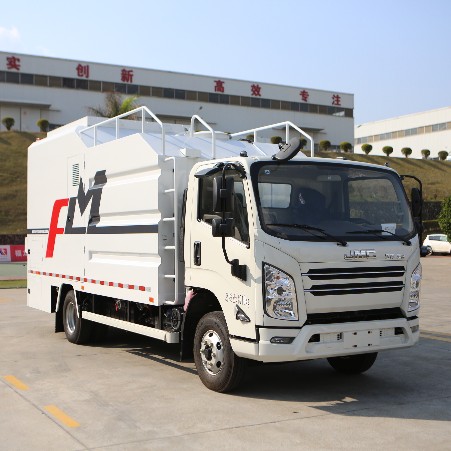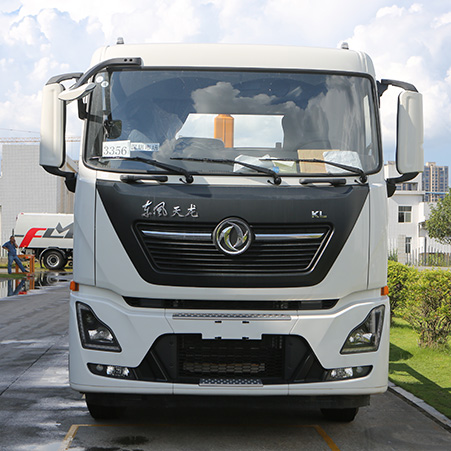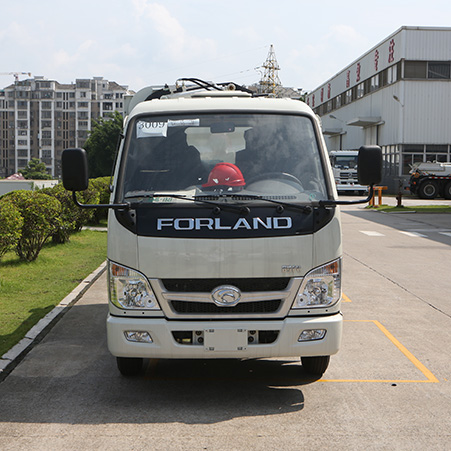Urban sanitation is a vital component of city living, impacting everything from public health to environmental sustainability. It’s a complex dance of logistics and operations, largely unseen by the public but essential for maintaining the cleanliness and livability of our urban spaces. At the forefront of this dance are the rubbish bin trucks, the workhorses of urban cleanliness. These vehicles are crucial for the efficient collection and transportation of waste, preventing the accumulation of garbage that can lead to unsanitary conditions.
Today’s urban sanitation needs are more demanding than ever, with growing populations and increased waste production. Rubbish bin trucks have risen to the challenge, becoming more efficient and adaptable.

The Evolution of Rubbish Bin Trucks
The rubbish bin truck, an essential vehicle in urban sanitation, has undergone significant transformations since its inception. The journey began in the late 19th century with basic horse-drawn carts that were used to transport waste. These rudimentary vehicles were soon replaced by motorized trucks, which offered a more efficient means of collecting and disposing of garbage. In the 1920s, the introduction of covered trucks in Europe marked a pivotal moment in the evolution of rubbish bin trucks, addressing the issues of sanitation and spillage associated with open trucks.
The 1930s saw further innovation with the development of the Dempster-Dumpster system, which utilized large bins that were mechanically loaded onto the trucks, a precursor to the modern rear-loader trucks. This system was complemented by the Barwood Load Packer, the first garbage truck with an onboard compacting system, allowing for more waste to be hauled in a single trip. The mid-20th century brought about the front loader, revolutionizing the efficiency of waste collection by allowing bins to be emptied directly into the truck without manual handling.

Rubbish Bin Trucks Technological Advancements
As environmental concerns grew, so did the sophistication of rubbish bin trucks. The latter part of the 20th century and the early 21st century introduced vehicles equipped with advanced technologies such as hydraulic lift systems, automated arms, and even electric and hybrid engines. These advancements not only improved the efficiency of waste collection but also aimed to reduce the environmental impact of the trucks themselves.
Today’s latest rubbish bin trucks are equipped with technology that makes them smarter, cleaner, and more efficient. GPS tracking, route optimization, and even automated collection are just the beginning.
Rubbish Bin Trucks Environmental Impact and Future Directions
The environmental impact of rubbish bin trucks is significant. While they are essential for cleanliness, they also contribute to emissions. However, the advent of electric and hybrid trucks promises a greener future for waste collection.

The future of rubbish bin trucks lies in sustainable practices and technologies. Electric vehicles, improved recycling processes, and smart waste management systems are on the horizon, aiming to make waste collection more efficient and environmentally friendly.
Rubbish bin trucks are indispensable to urban sanitation. Their evolution and continued innovation reflect our commitment to maintaining clean and healthy cities. As we look to the future, these vehicles will undoubtedly play a central role in shaping sustainable urban environments.
FAQs
How do rubbish bin trucks contribute to recycling efforts?
Rubbish bin trucks play a pivotal role in recycling efforts by providing the first step in the segregation and collection of recyclable materials. Many trucks are equipped with separate compartments for different types of waste, ensuring that recyclables are kept separate from general waste and are directed to the appropriate recycling facilities.
Can rubbish bin trucks operate in narrow urban streets?
Yes, rubbish bin trucks are designed with urban environments in mind. Many models are compact and highly maneuverable, allowing them to navigate through narrow streets and tight spaces. Some trucks also feature advanced camera systems to assist drivers in these challenging conditions.
What are the challenges rubbish bin trucks face in extreme weather conditions?
Extreme weather conditions, such as heavy snow, flooding, or heatwaves, can pose significant challenges to rubbish bin trucks. These conditions can lead to mechanical failures, route disruptions, and delays in waste collection. To mitigate these issues, trucks are often equipped with features like reinforced tires and heating systems, and routes are adjusted to accommodate the weather.
How has technology improved the efficiency of rubbish bin trucks?
Technological advancements have greatly improved the efficiency of rubbish bin trucks. Innovations include automated lift systems for bins, route optimization software to reduce fuel consumption and travel time, and systems that compact waste more effectively to maximize space and reduce the frequency of trips to disposal sites.
What measures are being taken to reduce the carbon footprint of rubbish bin trucks?
To reduce their carbon footprint, many rubbish bin trucks are transitioning to alternative fuels such as natural gas or electricity. Hybrid models are also becoming more common. Additionally, waste management companies are investing in route optimization and fleet management software to decrease idle times and improve fuel efficiency.






